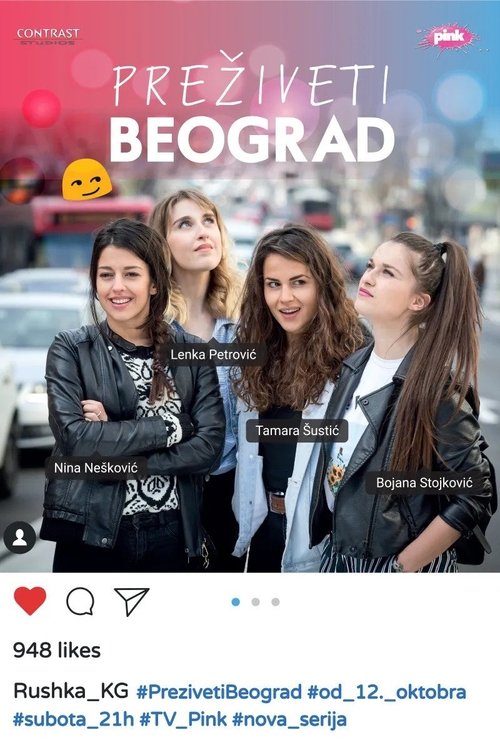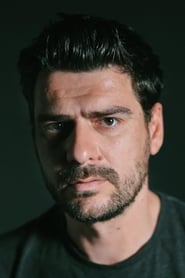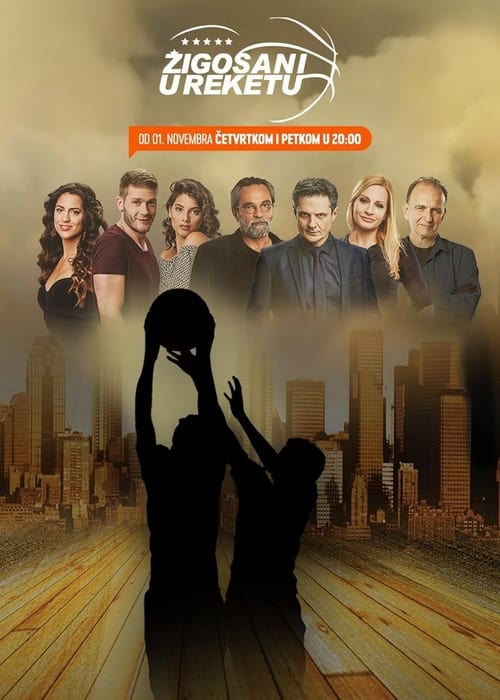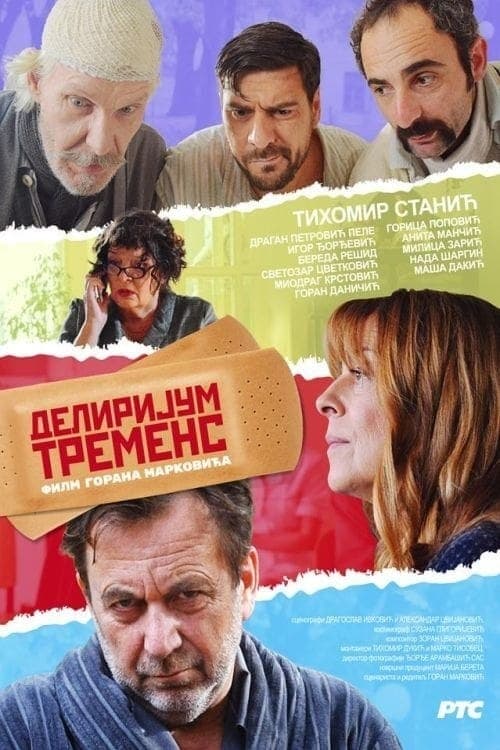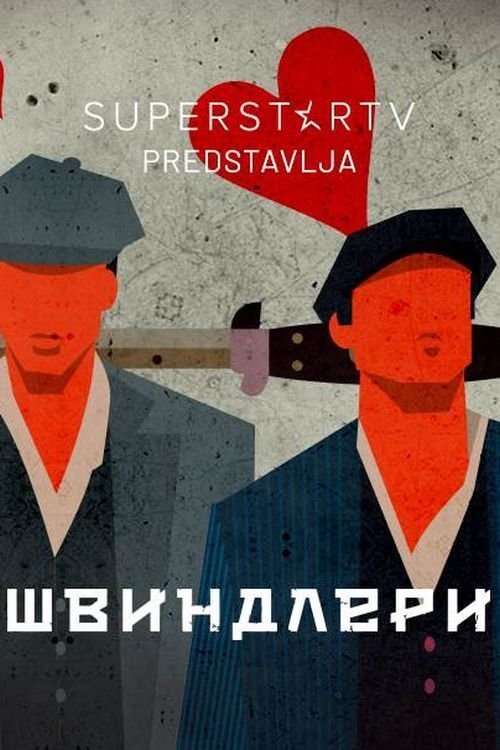
Ask Your Own Question
What is the plot?
In the opening scene of "Surviving Belgrade," we are introduced to the protagonist, Marko, a young man in his late twenties, who is struggling to find his place in a city rife with political unrest and social upheaval. Marko is seen working a mundane job at a local café, where he often daydreams about a more adventurous life. His internal conflict is palpable as he feels trapped in a cycle of monotony, yearning for change.
One evening, while closing the café, Marko overhears a group of activists discussing plans for a protest against the government. Intrigued, he approaches them, and they invite him to join their cause. This moment marks a turning point for Marko, as he decides to step out of his comfort zone and become involved in the political movement. His excitement is mixed with apprehension, reflecting his desire for purpose and belonging.
As the protest day arrives, the atmosphere is charged with energy. Marko, now fully committed, stands among the crowd, holding a sign and chanting slogans. The scene is vibrant, filled with passionate voices and colorful banners. However, the mood shifts dramatically when the police arrive to disperse the crowd. Tension escalates as officers begin to push back against the protesters, leading to chaos. Marko witnesses violence for the first time, and his initial thrill turns to fear as he realizes the stakes of his involvement.
In the midst of the chaos, Marko spots his childhood friend, Ana, who is also participating in the protest. They share a brief moment of connection, but it is cut short when the police start using tear gas. Marko and Ana are separated in the ensuing panic, and Marko is forced to flee into the narrow streets of Belgrade. His heart races as he navigates through the alleys, feeling both exhilarated and terrified.
After the protest, Marko meets with the activists to discuss their next steps. They decide to organize a series of underground meetings to strategize their efforts. During these meetings, Marko begins to form deeper connections with the group, particularly with a charismatic leader named Luka. Marko admires Luka's passion and determination, which inspires him to take on a more active role within the movement.
As the weeks progress, tensions in the city escalate. The government cracks down on dissent, leading to increased arrests of activists. Marko's resolve is tested when he learns that Ana has been detained during a subsequent protest. He feels a deep sense of guilt for not being there to protect her, which drives him to take more risks in the movement. This personal stake intensifies his commitment, and he begins to plan a more aggressive approach to their activism.
In a pivotal scene, Marko and Luka devise a plan to infiltrate a government building to gather evidence of corruption. They recruit a small team of trusted activists and prepare for the operation. The night of the infiltration is tense; the group moves stealthily through the darkened streets, their hearts pounding with adrenaline. As they reach the building, they encounter unexpected security measures, forcing them to adapt their plan on the fly.
Inside the building, the group splits up to cover more ground. Marko and Luka find themselves in a dimly lit office filled with documents. They quickly gather evidence, but their success is short-lived when they trigger an alarm. The sound echoes through the halls, and they realize they must escape immediately. The urgency of the moment heightens their fear, and they sprint through the corridors, narrowly avoiding security personnel.
As they make their way out, Marko is confronted by a guard. In a moment of desperation, he pushes the guard aside, leading to a physical struggle. The fight is intense, with Marko's adrenaline fueling his actions. He manages to subdue the guard just long enough for him and Luka to escape through a back exit. The thrill of their successful escape is overshadowed by the realization of how close they came to being caught.
Back in the safety of their hideout, the group celebrates their successful operation, but the mood quickly shifts when they learn that Ana's situation has worsened. She is facing serious charges, and the group must decide how to respond. Marko feels a deep sense of responsibility for her well-being, and he proposes a plan to rally public support for her release. The group agrees, and they begin organizing a campaign to raise awareness about her plight.
As the campaign gains traction, Marko becomes a public face of the movement, which brings both attention and danger. He receives threats from government supporters, and the pressure mounts as he navigates the complexities of being in the spotlight. Despite the risks, Marko remains determined to fight for Ana and the cause, driven by a newfound sense of purpose.
In a climactic confrontation, the activists organize a large rally to demand justice for Ana and other detained protesters. The event draws significant media attention, and the atmosphere is electric with hope and determination. However, the government responds with force, sending in riot police to disperse the crowd. Marko stands at the forefront, rallying the protesters to remain peaceful despite the escalating violence.
As the police begin to push back, Marko witnesses the brutality firsthand. The emotional weight of the situation overwhelms him, and he feels a mix of fear, anger, and resolve. In a moment of clarity, he realizes that their fight is not just for Ana, but for the future of their city. This realization strengthens his resolve, and he leads the crowd in a powerful chant, urging them to stand firm.
The confrontation escalates into chaos as the police begin to arrest protesters. Marko is caught in the fray, and in a desperate attempt to protect a fellow activist, he is taken into custody. The scene is harrowing, with Marko feeling a sense of helplessness as he is led away, but also a fierce determination to continue the fight from within.
In the final scenes, Marko is shown in a holding cell, reflecting on his journey and the sacrifices made for the cause. He receives a letter from Ana, who expresses her unwavering support and belief in their fight. This letter reignites his spirit, and he vows to continue advocating for justice, even from behind bars. The series ends on a note of resilience, highlighting the ongoing struggle for freedom and the unbreakable bonds formed through shared adversity.
More TV Shows Like This
Browse All TV Shows →What is the ending?
In the ending of "Surviving Belgrade," the main characters face the culmination of their struggles as they confront their pasts and the harsh realities of their lives in the city. The story concludes with a sense of resolution for some, while others are left grappling with their choices and the consequences of their actions.
As the final scenes unfold, we see Marko, who has been on a journey of self-discovery throughout the series, finally confront his estranged father. This emotional confrontation takes place in a dimly lit café, where the tension is palpable. Marko's voice trembles as he expresses years of hurt and abandonment, while his father, visibly aged and regretful, struggles to articulate his feelings. The scene is heavy with unspoken words and lingering resentment, but it ultimately leads to a tentative reconciliation, leaving Marko with a sense of closure.
Meanwhile, Ana, who has been battling her own demons, finds herself at a crossroads. In a poignant scene set against the backdrop of a bustling Belgrade street, she decides to leave the city behind in search of a new beginning. Her decision is bittersweet, filled with both hope and fear. As she walks away, the camera lingers on her face, capturing the mix of determination and vulnerability that defines her character.
On the other hand, Luka, who has been embroiled in a web of crime and betrayal, faces the consequences of his actions. In a tense standoff with rival gang members, he realizes that his choices have led him to a dead end. The scene is fraught with danger, and as the confrontation escalates, Luka makes a desperate choice to protect his loved ones. The screen fades to black as gunshots ring out, leaving his fate uncertain and the audience in suspense.
The series concludes with a montage of the main characters' lives post-conflict. Marko is seen starting a new chapter, working towards rebuilding his relationship with his father. Ana is shown in a new city, embracing the unknown with a hopeful smile. Luka's fate remains ambiguous, leaving viewers to ponder the impact of his choices.
In this ending, "Surviving Belgrade" encapsulates the themes of redemption, the search for identity, and the harsh realities of life in a city marked by struggle. Each character's journey reflects the complexities of human relationships and the enduring quest for a better future amidst adversity.
Is there a post-credit scene?
In "Surviving Belgrade," there is indeed a post-credit scene that adds an intriguing layer to the narrative. After the credits roll, the screen fades back in to a dimly lit café in the heart of Belgrade. The atmosphere is thick with tension, as the camera pans slowly across the room, revealing a few familiar faces from the main storyline, each lost in their thoughts.
The scene focuses on Marko, one of the central characters, who sits alone at a table, nursing a drink. His expression is a mix of contemplation and regret, reflecting on the tumultuous events that have unfolded throughout the series. As he stares out the window, the bustling life of the city contrasts sharply with his internal turmoil.
Suddenly, a figure enters the café, and the camera shifts to reveal Ana, another key character whose fate had been left uncertain in the finale. She approaches Marko with a hesitant smile, and the tension in the air shifts to a more hopeful tone. Their conversation is muted, but the body language speaks volumes--there's a sense of reconciliation and unspoken understanding between them.
As they talk, the camera zooms in on a small piece of paper on the table, which is partially obscured. It's a map of Belgrade with several locations marked, hinting at new adventures or challenges that lie ahead. The scene ends with a close-up of Marko's face, a flicker of determination igniting in his eyes, suggesting that while the past has been fraught with difficulties, the future holds promise.
This post-credit scene serves as a poignant reminder of the characters' growth and the unresolved threads of their stories, leaving viewers with a sense of anticipation for what might come next.
What significant events lead to the climax of the series?
The climax is reached when a series of misunderstandings culminate in a dramatic confrontation between Marko and Ana during a city-wide festival. This event forces them to confront their feelings and the impact of their choices, leading to a turning point that reshapes their relationship and sets the stage for their future.
What challenges does the main character face in adapting to life in Belgrade?
The main character, Marko, struggles with the cultural differences and the fast-paced lifestyle of Belgrade. He feels isolated and overwhelmed by the city's vibrant yet chaotic atmosphere. His internal conflict is heightened by his longing for his hometown, which contrasts sharply with the urban environment he now navigates.
How does the relationship between Marko and his childhood friend evolve throughout the series?
Marko's relationship with his childhood friend, Ana, becomes strained as they both confront their pasts and the choices that led them to different paths. Initially, their bond is strong, filled with nostalgia, but as they face the realities of adulthood, misunderstandings and unspoken feelings create tension, leading to pivotal confrontations that test their friendship.
What role does the city of Belgrade play in shaping the characters' journeys?
Belgrade serves as a character in its own right, influencing the protagonists' decisions and emotional states. The city's rich history and vibrant culture provide both inspiration and obstacles for Marko and Ana, as they navigate their personal struggles against the backdrop of urban life, which often reflects their internal chaos.
How does Marko's family background impact his experiences in Belgrade?
Marko's family background, marked by financial struggles and a history of migration, deeply affects his self-esteem and aspirations. He grapples with the pressure to succeed and the fear of disappointing his family, which drives him to make choices that often conflict with his desires, leading to moments of introspection and growth.
Is this family friendly?
"Surviving Belgrade," produced in 2019, is a drama that explores the complexities of life in a city marked by social and political challenges. While the show delves into important themes, it does contain elements that may not be suitable for children or sensitive viewers.
Potentially objectionable or upsetting aspects include:
-
Violence and Conflict: The series portrays scenes of social unrest and conflict, which may include physical altercations and emotional confrontations that could be distressing.
-
Emotional Turmoil: Characters experience significant emotional struggles, including grief, loss, and betrayal, which may resonate deeply and evoke strong feelings.
-
Substance Use: There are instances of characters engaging in substance use, which may not be appropriate for younger audiences.
-
Mature Themes: The show addresses complex social issues such as poverty, corruption, and family dysfunction, which may be difficult for younger viewers to fully understand or process.
-
Intense Relationships: The dynamics between characters can be fraught with tension, including betrayal and manipulation, which may be unsettling for some viewers.
Overall, while "Surviving Belgrade" offers a rich narrative, its themes and content may be better suited for a mature audience.

